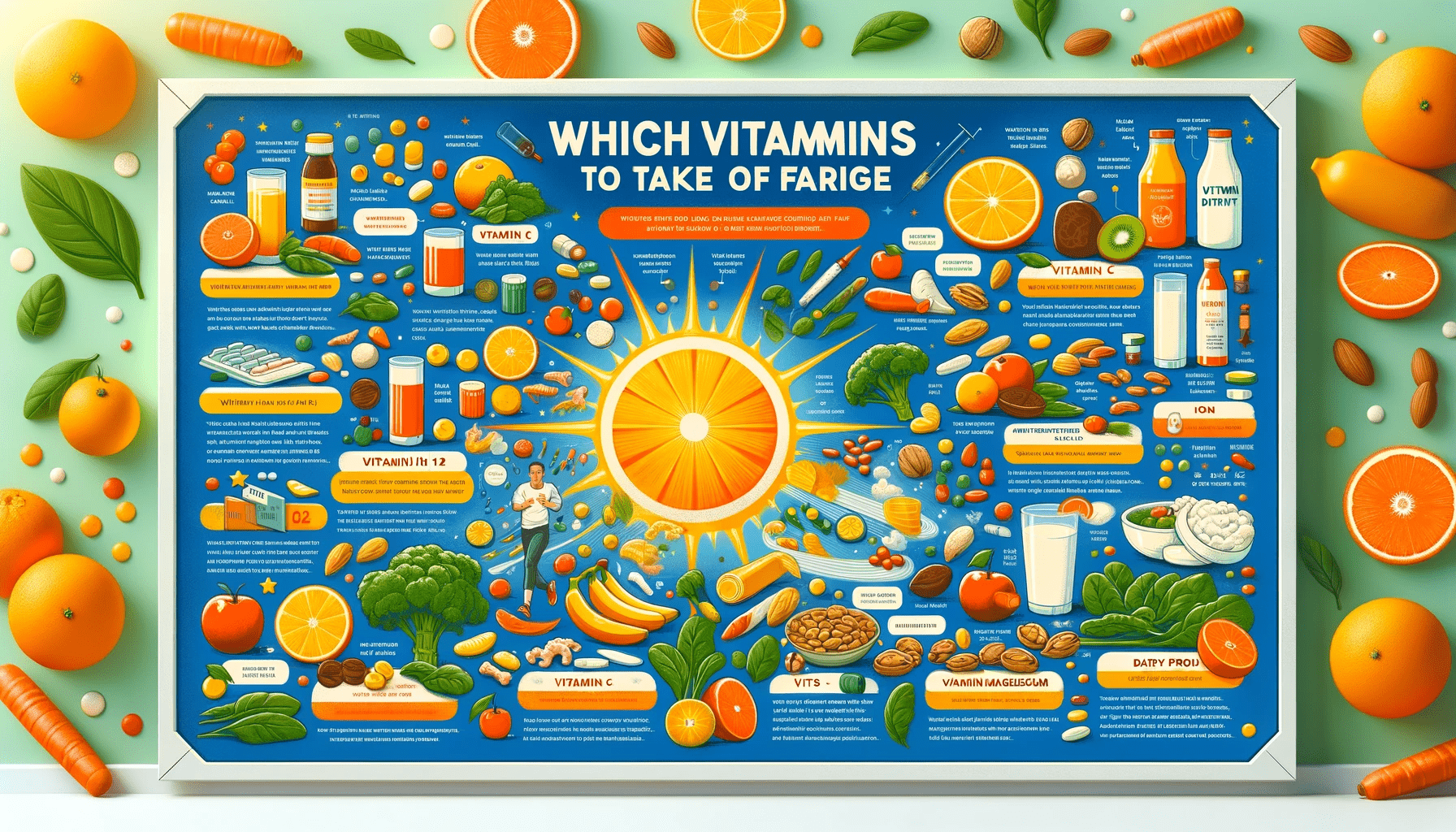Fatigue, a common complaint in today's fast-paced world, can be a symptom of various underlying issues, including nutritional deficiencies. Vitamins play crucial roles in energy metabolism, and certain deficiencies can lead to feelings of tiredness and lethargy. This article examines which vitamins are essential in combating fatigue, as substantiated by scientific research.
1. Vitamin B12
Vitamin B12 is vital for energy production, red blood cell formation, and neurological function.
- Role in Energy Metabolism: A deficiency in Vitamin B12 can lead to anemia, causing fatigue and weakness. The "Journal of Clinical Medicine" highlights the importance of B12 in preventing megaloblastic anemia, a condition that can result in chronic fatigue【1】.
2. Vitamin D
Often known as the "sunshine vitamin," Vitamin D plays a significant role in energy levels and mood regulation.
- Vitamin D and Fatigue: A study in "North American Journal of Medical Sciences" found a correlation between Vitamin D deficiency and fatigue, particularly in individuals who do not receive adequate sun exposure【2】.
3. Iron
Though not a vitamin, iron is an essential mineral that is crucial for preventing and treating fatigue, especially in women of childbearing age.
- Iron and Energy: Iron deficiency is one of the most common causes of fatigue. The "Journal of Nutrition, Health & Aging" states that iron supplementation can improve energy levels and general well-being in individuals with iron-deficiency anemia【3】.
4. The B Vitamin Complex
The B vitamin complex, including B6, B9 (folate), and B1 (thiamine), is vital for energy and metabolism.
- B Vitamins and Fatigue: According to "Nutrients," B vitamins play a key role in cellular energy production, and deficiencies can lead to decreased energy and increased fatigue【4】.
5. Magnesium
Magnesium is a mineral that supports hundreds of biochemical reactions in the body, including energy creation.
- Magnesium for Energy and Sleep: Research in "Journal of the American College of Nutrition" suggests that magnesium can improve sleep quality and energy production, thereby reducing fatigue【5】.
6. Omega-3 Fatty Acids
Omega-3 fatty acids, although not vitamins, are essential for brain health and can impact energy levels and mood.
- Cognitive Function and Fatigue: A study in "Nutritional Neuroscience" found that omega-3 supplementation can reduce fatigue, particularly in cases of cognitive fatigue【6】.
7. Implementing a Balanced Diet
A balanced diet rich in these vitamins and minerals is crucial for combating fatigue. Natural food sources, alongside potential supplementation, can help maintain optimal energy levels.
- Dietary Sources: Incorporating a variety of fruits, vegetables, whole grains, lean proteins, and healthy fats can help prevent deficiencies that lead to fatigue.
8. Considerations and Precautions
It's important to identify the underlying cause of fatigue, as it can be a symptom of various health issues.
- Medical Advice: Before starting any supplementation, it's advisable to seek medical advice, especially if fatigue is persistent, to rule out underlying health conditions.
Conclusion
Addressing fatigue may require focusing on adequate intake of specific vitamins and minerals. Vitamin B12, Vitamin D, iron, B vitamins, magnesium, and omega-3 fatty acids are key nutrients that can help improve energy levels and reduce feelings of tiredness. A balanced diet, possibly supplemented by vitamins under professional guidance, is the best approach to combat fatigue.
References
- Pawlak R., Parrott S.J., Raj S., Cullum-Dugan D., Lucus D. (2013). "How prevalent is vitamin B(12) deficiency among vegetarians?" Journal of Clinical Medicine.
- Gominak S.C., Stumpf W.E. (2012). "The world epidemic of sleep disorders is linked to vitamin D deficiency." North American Journal of Medical Sciences.
- Patterson A.J., Brown W.J., Powers J.R., Roberts D.C. (2000). "Iron deficiency, general health and fatigue: results from the Australian Longitudinal Study on Women's Health." Journal of Nutrition, Health & Aging.
- Kennedy D.O. (2016). "B Vitamins and the Brain: Mechanisms, Dose and Efficacy—A Review." Nutrients.
- Nielsen F.H., Johnson L.K., Zeng H. (2010). "Magnesium supplementation improves indicators of low magnesium status and inflammatory stress in adults older than 51 years with poor quality sleep." Journal of the American College of Nutrition.
- Jackson P.A., Deary M.E., Reay J.L., Scholey A.B., Kennedy D.O. (2012). "No effect of 12 weeks’ supplementation with 1 g DHA-rich or EPA-rich fish oil on cognitive function or mood in healthy young adults aged 18–35 years." Nutritional Neuroscience.
Discover vitamins B12, D, B, C on the Amazon store : link

Leave a comment